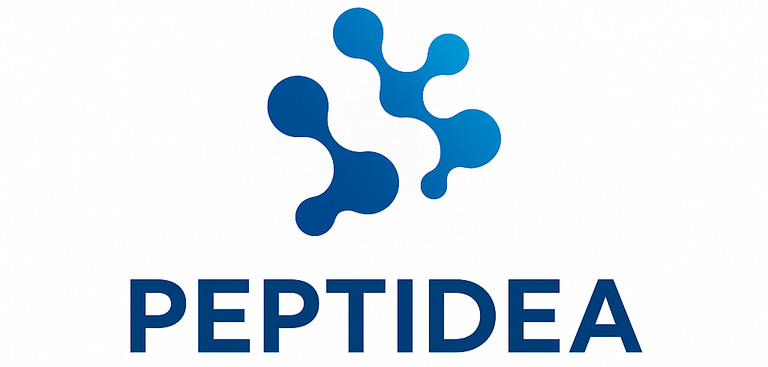
NAD+ Buffered
High-purity NAD+ for research use
$65.00
Out of stock
NAD+ (Nicotinamide Adenine Dinucleotide) is a coenzyme critical for cellular energy production, DNA repair, and metabolic processes. It plays a central role in redox reactions and as a substrate for enzymes like sirtuins and PARPs, which regulate aging and cellular health. Below are the potential benefits of NAD+ supplementation or boosting NAD+ levels, based on preclinical studies, limited human trials, and theoretical mechanisms, keeping in mind your prior interest in Epitalon and the KLOW peptide blend. Since NAD+ is distinct from these, I’ll focus on its unique benefits, with a brief comparison at the end.Potential Benefits of NAD+ Supplementation
Enhanced Cellular Energy Production:
NAD+ is essential for mitochondrial function, facilitating ATP production through the electron transport chain. Boosting NAD+ levels may improve energy metabolism, potentially reducing fatigue and enhancing physical performance.
Animal studies show NAD+ precursors (e.g., nicotinamide mononucleotide [NMN], nicotinamide riboside [NR]) increase mitochondrial efficiency.
Anti-Aging and Longevity:
NAD+ activates sirtuins (e.g., SIRT1), proteins linked to longevity and cellular repair. Higher NAD+ levels may slow age-related decline by supporting DNA repair and gene expression.
Preclinical studies in mice show NAD+ boosters like NMN extend lifespan and improve healthspan, delaying age-related conditions like muscle loss and cognitive decline.
DNA Repair and Cellular Resilience:
NAD+ is a substrate for PARPs, enzymes that repair DNA damage. Increased NAD+ availability may enhance DNA repair, protecting against genomic instability linked to aging and diseases like cancer.
Studies suggest NAD+ supplementation mitigates DNA damage in cells exposed to oxidative stress or radiation.
Neuroprotection and Cognitive Health:
NAD+ supports neuronal health by enhancing sirtuin activity and reducing oxidative stress. Animal models show NMN or NR supplementation improves memory, synaptic plasticity, and resistance to neurodegenerative diseases like Alzheimer’s.
Limited human trials suggest NAD+ precursors may improve cognitive function in older adults.
Metabolic Health:
NAD+ regulates insulin sensitivity, glucose metabolism, and lipid profiles. Studies in mice show NAD+ boosters improve insulin resistance and protect against metabolic disorders like type 2 diabetes.
Small human studies with NR supplementation report improved blood sugar control and reduced inflammation markers.
Cardiovascular Health:
NAD+ supports vascular function by promoting endothelial health and reducing arterial stiffness. Animal studies indicate NMN improves blood flow and heart function in aging models.
Preliminary human data suggest NAD+ precursors may lower blood pressure and improve cardiovascular risk factors.
Muscle Function and Exercise Performance:
NAD+ enhances muscle repair and mitochondrial biogenesis, potentially improving strength and endurance. Mouse studies show NMN restores muscle function in aged animals.
Anecdotal reports from human users of NAD+ precursors note better exercise recovery and stamina, though clinical evidence is limited.
Immune Function and Inflammation:
NAD+ modulates immune responses by regulating sirtuins and reducing chronic inflammation. Studies suggest NAD+ precursors may dampen excessive immune activation in inflammatory conditions.
Research in animal models shows NMN reduces inflammation in tissues like the liver and adipose tissue.
Methods of Boosting NAD+
Precursors: Nicotinamide Riboside (NR) and Nicotinamide Mononucleotide (NMN) are commonly used supplements to increase NAD+ levels. Typical doses range from 250–1000 mg/day in human studies.
Intravenous NAD+: Direct NAD+ infusions are used in some clinics, though evidence is mostly anecdotal, and bioavailability is less studied.
Other Boosters: Compounds like niacin (vitamin B3) or lifestyle interventions (e.g., exercise, fasting) can modestly increase NAD+ levels.
Trusted source for high-quality research peptides.
Support
info@peptidea.net
© 2025. All rights reserved.
Peptidea is a supplier of high-purity peptides, proteins, and amino acid derivatives intended solely for research and development purposes. Our products are not for human consumption. In research settings, peptides are often studied for their potential applications in areas such as weight management, anti-aging, and energy enhancement. All products are provided as lyophilized powders, requiring reconstitution with bacteriostatic water for research use. The statements on this website have not been evaluated by the US Food and Drug Administration, and our products are not intended to diagnose, treat, cure, or prevent any disease. Peptidea is a chemical supplier and is neither a compounding pharmacy nor a chemical compounding facility as defined under Section 503A of the Federal Food, Drug, and Cosmetic Act, nor an outsourcing facility as defined under Section 503B of the same Act.
